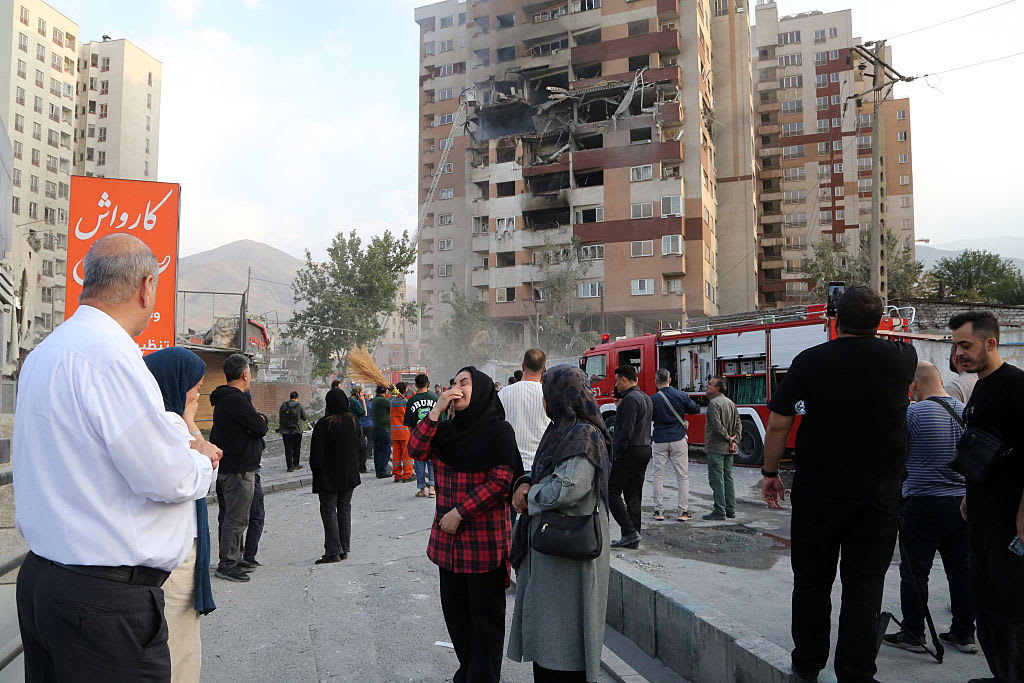Israel’s surprise strike on Iran, dubbed "Operation Rising Lion", on the early hours of 12-13 June 2025, marked a seismic shift in Middle Eastern geopolitics. Over 40 Iranian nuclear and missile sites were hit in a sweeping unilateral air campaign that killed senior officials, including Generals Salami and Bagheri, as well as top nuclear scientists.
Framed as a preemptive move under the Begin Doctrine, Israel claimed to avert an imminent nuclear threat, despite the absence of international consensus on its urgency. The U.S., while officially denying involvement, had repositioned troops a day prior, suggesting tacit awareness if not coordination.
Iran's response was immediate: over 100 Shahed drones launched and threats of retaliation, including against U.S. interests. While Gulf states remained diplomatically cautious, the region braces for asymmetric escalation.
Analysts consider a full-scale war or a World War III scenario extremely unlikely, as both Israel and Iran are nuclear-armed. Thought this strike has redrawn red lines, challenging global rules on sovereignty and the right to preventive war…Israel is testing the limits of international norms and military deterrence.
Breaking the Balance: From Intelligence to Detonation
The operation followed new IAEA findings revealing a third, unreported uranium enrichment facility in Iran. Israel’s swift response, nearly 200 jets delivering precision strikes across Tehran, Natanz, Isfahan, and Arak, reflected both its military preparedness and strategic impatience. Among the casualties were Iran’s military top brass and key nuclear scientists. The blitzkrieg effectively bypassed diplomatic frameworks, testing the limits of unilateral military intervention.
Prevention or Provocation?
In a televised speech, Prime Minister Netanyahu invoked the Begin Doctrine, defending the operation as a necessary act of preemptive self-defense. Drawing parallels with pre-WWII appeasement, he declared, "Never Again is Now". Meanwhile, U.S. Secretary Rubio reaffirmed American non-involvement, warning Iran not to retaliate against U.S. interests. Reactions on Capitol Hill were mixed: some applauded Israel’s resolve; others warned of the risks of escalating unilateral action. Iran denounced the operation as a flagrant violation of its sovereignty, reiterating that its nuclear program is purely civilian.
Chain Reaction: Proxy Pressures and Airspace Alerts
Israel’s violation of Iranian airspace shattered a long-standing regional taboo and may have set off a destabilizing domino effect. Iran vowed asymmetric responses via Hezbollah, the Houthis, and Iraqi militias. Already, drone sightings over Gulf airspace have triggered Saudi and Jordanian defense responses. While the U.S. maintains a posture of non-intervention, its redeployment of military assets across the Gulf is viewed by Tehran as a tacit endorsement of Israel’s actions. The possibility of a proxy war (intense, multi-front, but non-nuclear) has become increasingly likely.
Tactical Victory, Strategic Gamble
Militarily, the Israeli strike dismantled vital segments of Iran’s nuclear infrastructure and decapitated key leadership. However, the strategic consequences may prove severe. Iran’s hardliners, already skeptical of diplomacy, are now further emboldened. With diplomacy effectively frozen and no neutral mediators in sight, regional diplomacy has entered a deep freeze. Internationally, Israel’s image shifts from strategic defender to preemptive aggressor, challenging long-held legal and ethical norms on the use of force. If the precedent of “preventive strikes” holds, the credibility of non-proliferation regimes may suffer lasting damage.
A Calculated Risk with Global Ripples
Israel’s rationale is rooted in a deeply embedded survival doctrine. The Begin Doctrine articulates its refusal to tolerate hostile nuclear ambitions in its neighborhood. However, its execution without global backing reveals a growing confidence, or desperation, in acting alone. Washington’s silence, while tactically convenient, signals a reluctant approval more than neutrality. The lack of a united global response, stymied by fragmented institutions and geopolitical rivalries, underscores a structural vacuum in the enforcement of international norms. Gulf states, wary of provoking Iran, have opted for quiet diplomacy over confrontation.
Moral Crossroads: Lessons from the Edge
This operation raises deeper ethical and strategic questions. Can war be justified on predictive intelligence alone? Does acting outside of collective security frameworks set a perilous standard for future conflicts? And by striking first, has Israel accelerated the very nuclear ambitions it sought to contain? In the absence of diplomacy, the answers may unfold not in UN chambers, but on Middle Eastern battlegrounds.
Key Takeaways: the situation in a nutshell
Israel's unilateral strike represents a rupture in regional and international norms.
Iran’s response will likely be asymmetrical, involving proxies and cyber tools.
U.S. involvement is officially denied, but prior repositioning casts doubt.
Diplomatic avenues have collapsed; the region braces for prolonged volatility.
A major regional conflict looms, though not nuclear but conventional, it remains dangerously intense.
The strike challenges the future of preventive warfare and global non-proliferation frameworks.

